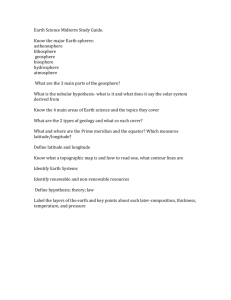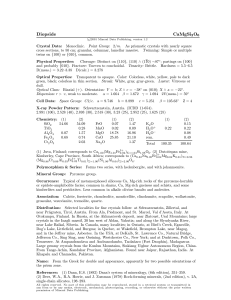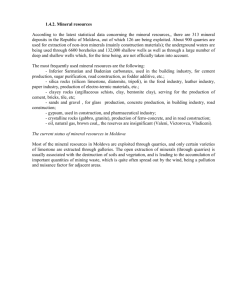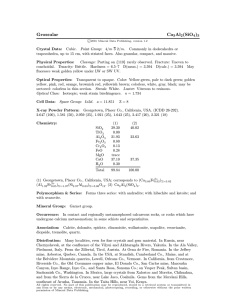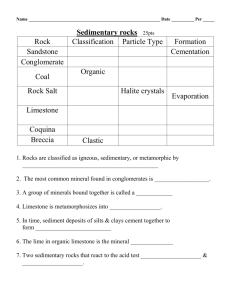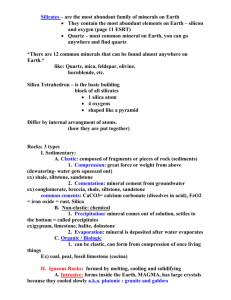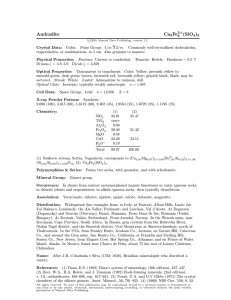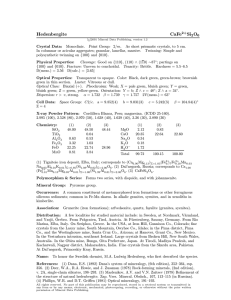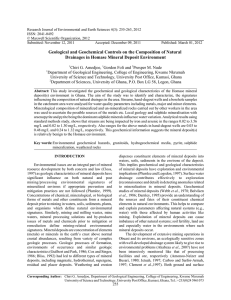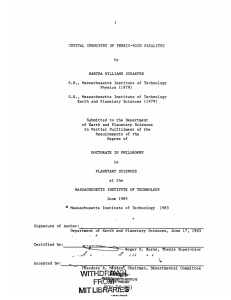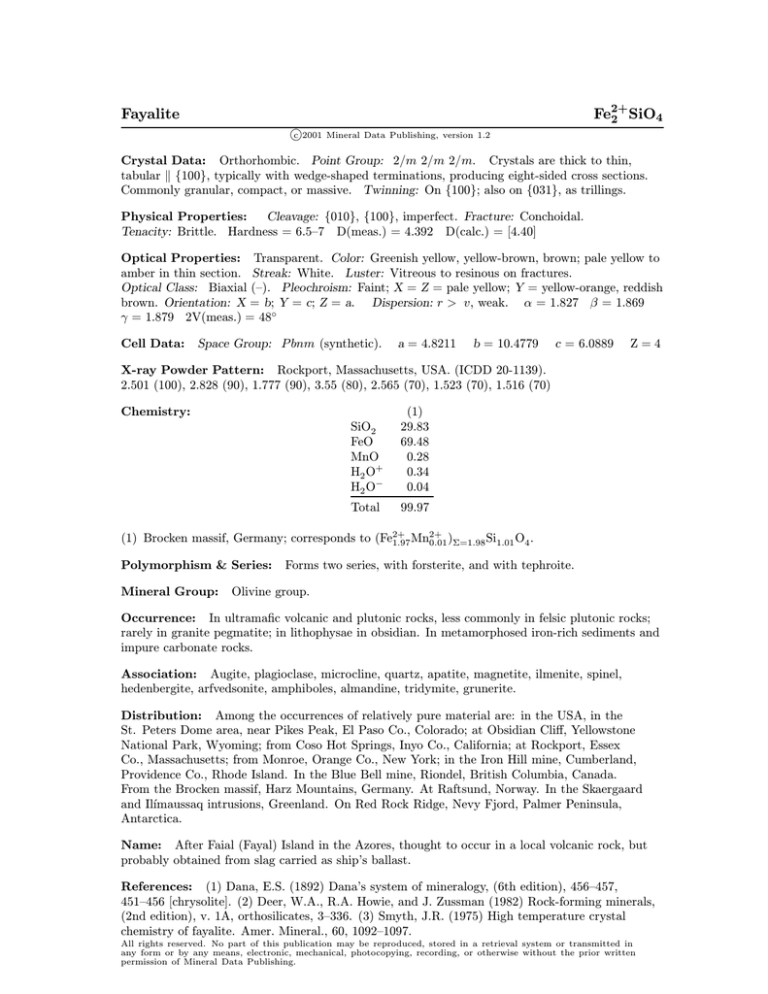
Fe2+
2 SiO4
Fayalite
c 2001
°
Mineral Data Publishing, version 1.2
Crystal Data: Orthorhombic. Point Group: 2=m 2=m 2=m: Crystals are thick to thin,
tabular k f100g, typically with wedge-shaped terminations, producing eight-sided cross sections.
Commonly granular, compact, or massive. Twinning: On f100g; also on f031g, as trillings.
Physical Properties:
Cleavage: f010g, f100g, imperfect. Fracture: Conchoidal.
Tenacity: Brittle. Hardness = 6.5{7 D(meas.) = 4.392 D(calc.) = [4.40]
Optical Properties: Transparent. Color: Greenish yellow, yellow-brown, brown; pale yellow to
amber in thin section. Streak: White. Luster: Vitreous to resinous on fractures.
Optical Class: Biaxial ({). Pleochroism: Faint; X = Z = pale yellow; Y = yellow-orange, reddish
brown. Orientation: X = b; Y = c; Z = a. Dispersion: r > v; weak. ® = 1.827 ¯ = 1.869
° = 1.879 2V(meas.) = 48±
Cell Data:
Space Group: P bnm (synthetic).
a = 4.8211
b = 10.4779
c = 6.0889
Z=4
X-ray Powder Pattern: Rockport, Massachusetts, USA. (ICDD 20-1139).
2.501 (100), 2.828 (90), 1.777 (90), 3.55 (80), 2.565 (70), 1.523 (70), 1.516 (70)
Chemistry:
SiO2
FeO
MnO
H2 O+
H2 O¡
(1)
29.83
69.48
0.28
0.34
0.04
Total
99.97
2+
(1) Brocken massif, Germany; corresponds to (Fe2+
1:97 Mn0:01 )§=1:98 Si1:01 O4 :
Polymorphism & Series:
Mineral Group:
Forms two series, with forsterite, and with tephroite.
Olivine group.
Occurrence: In ultrama¯c volcanic and plutonic rocks, less commonly in felsic plutonic rocks;
rarely in granite pegmatite; in lithophysae in obsidian. In metamorphosed iron-rich sediments and
impure carbonate rocks.
Association: Augite, plagioclase, microcline, quartz, apatite, magnetite, ilmenite, spinel,
hedenbergite, arfvedsonite, amphiboles, almandine, tridymite, grunerite.
Distribution: Among the occurrences of relatively pure material are: in the USA, in the
St. Peters Dome area, near Pikes Peak, El Paso Co., Colorado; at Obsidian Cli®, Yellowstone
National Park, Wyoming; from Coso Hot Springs, Inyo Co., California; at Rockport, Essex
Co., Massachusetts; from Monroe, Orange Co., New York; in the Iron Hill mine, Cumberland,
Providence Co., Rhode Island. In the Blue Bell mine, Riondel, British Columbia, Canada.
From the Brocken massif, Harz Mountains, Germany. At Raftsund, Norway. In the Skaergaard
and Il¶³maussaq intrusions, Greenland. On Red Rock Ridge, Nevy Fjord, Palmer Peninsula,
Antarctica.
Name: After Faial (Fayal) Island in the Azores, thought to occur in a local volcanic rock, but
probably obtained from slag carried as ship's ballast.
References: (1) Dana, E.S. (1892) Dana's system of mineralogy, (6th edition), 456{457,
451{456 [chrysolite]. (2) Deer, W.A., R.A. Howie, and J. Zussman (1982) Rock-forming minerals,
(2nd edition), v. 1A, orthosilicates, 3{336. (3) Smyth, J.R. (1975) High temperature crystal
chemistry of fayalite. Amer. Mineral., 60, 1092{1097.
All rights reserved. No part of this publication may be reproduced, stored in a retrieval system or transmitted in
any form or by any means, electronic, mechanical, photocopying, recording, or otherwise without the prior written
permission of Mineral Data Publishing.

